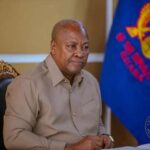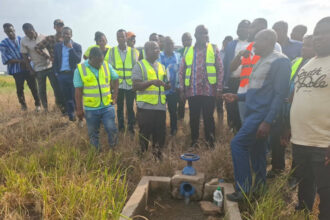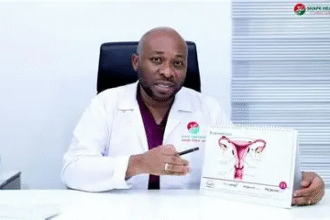Ghana is set to produce nuclear energy by 2029 to meet its energy needs.
Dr. Robert B.M. Sogbadji, Deputy Director of Nuclear and Alternative Energy at the Ministry of Energy, and Coordinator of the Ghana Nuclear Power Programme, made this known on Wednesday in Accra during a workshop for journalists on nuclear energy.
The workshop, organized by Rosatom, a Russian firm, in partnership with the Ministry of Energy, was to provide Ghanaian journalists with necessary information on key elements of nuclear programme in Ghana, global trends in nuclear and best practices for media reports on nuclear.
It was also used to correct the ‘misconceptions’ that nuclear energy was expensive and dangerous compared to other sources of energy.
Construction of the plant is expected to begin from 2023-2029.
The plant is expected to generate 1,200 megawatts of electricity to the national grid and also to feed the West African power pool.
Its cost have not been established, but it’s believed that 1,200 megawatts nuclear power plant costs usually $5 billion as a four-unit plant being built in Egypt with 1,200 megawatts each is reported to be costing about $21 billion.
Dr. Sogbadji explained that legal, regulatory and safety issues were being considered before the construction of the plant can commence six years from now.
According to the Director of Renewable and Nuclear Energy at the Ministry of Energy, Wisdom Ahiataku-Togobo, Ghana has signed some Memorandum of Understandings (MoUs) with firms from the United States, South Korea, Russia, and China.
Prof. Kwame Aboh, Acting Director General of the Nuclear Regulatory Authority, said Rosatom, a Russian Nuclear Energy firm, is leading the race to establish Ghana’s first nuclear plant.
He noted that the quest for energy self-sufficiency should be of concern to all and sundry.
According to him, nuclear energy has become paramount because most water bodies in the country are going bad and that poses problems for generating power through hydro.
He added that the nuclear power plant, when constructed and operationalized, will have a great impact on the country’s electricity generation capacity.
Discussions on the construction of the plant began in 2007 under the erstwhile Kufuor administration
The process apparently halted after the New Patriotic Party (NPP) lost power on January 7, 2009, but efforts are now being made by the Akufo-Addo administration to begin the construction of the proposed plant.
No site has been identified as the preferred location for the plant and the financing model has not settled on.
Rosatom has begun engagements with key stakeholders, including the media and civil society organizations to ensure that project comes to fruition.
South Africa is the only country in Sub-Saharan Africa currently producing nuclear power, and Ghana is reported to be the next country that has made tremendous efforts in establishing Sub-Saharan Africa’s second nuclear plant.
Government and Rosatom believe the plant will have a great effect on Ghana’s economy and Gross Domestic Product (GDP) growth.
General Director of Rosatom Central and Southern Africa, Dmitry Shornikov, stressed the importance of nuclear energy and indicated that safety issues would be thoroughly tackled in Ghana.
Source: Daily Guide














